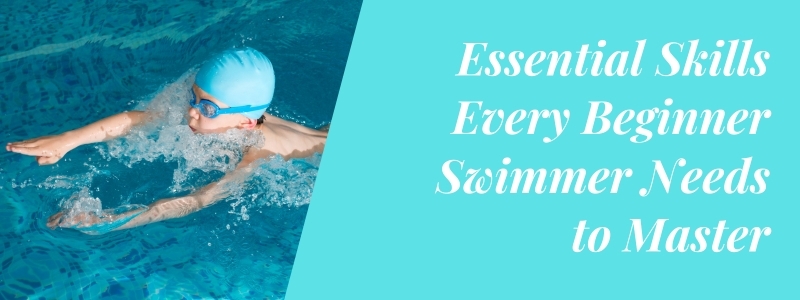
Taking the plunge into the world of swimming can be both exciting and daunting, especially for beginners. Whether you're looking for a new form of exercise, a fun summer activity, or simply want to feel more comfortable in the water, mastering a few essential skills will set you on the path to swimming success.
1. Building Water Confidence:
Before diving headfirst into stroke technique, it's crucial to develop comfort and familiarity with the water. Start by getting used to being submerged, gently blowing bubbles underwater, and practicing putting your face in the water while holding your breath. Walking or standing in shallow water can also help you feel more secure. Remember, it's perfectly okay to take things slow and prioritise feeling at ease in the pool or lake.
2. Mastering Breath Control:
Efficient breathing is the cornerstone of good swimming technique. Begin by practising exhaling underwater, completely emptying your lungs before taking a sharp inhale at the surface. Remember to turn your head to the side and breathe out through your mouth and nose, not your ears! Practice holding your breath for short durations while holding onto the pool wall and gradually increase the hold time as you become more comfortable.
3. Learning to Float:
Floating allows your body to relax and become more buoyant in the water. Practice leaning back in the water, keeping your ears submerged and your arms and legs extended. Focus on taking deep, slow breaths and engaging your core muscles to maintain your position. This skill not only builds confidence but also conserves energy for when you start swimming actively.
4. Perfecting the Sculling Technique:
Sculling involves moving your hands back and forth in small circles while keeping your body horizontal in the water. This exercise helps develop upper body strength, body position, and coordination, all vital for proper swimming. Practice sculling while holding your breath or gently kicking your legs to propel yourself forward.
5. Kicking with Efficiency:
A strong and efficient kick is essential for propulsion and maintaining balance in the water. There are different kicking styles for various strokes, but beginners can start by practicing flutter kicks. Keep your legs straight, toes pointed, and kick from your hips, not your knees. Focus on creating a small, continuous motion rather than forceful splashes.
6. Combining Skills and Introducing Strokes:
Once comfortable with the essential skills, it's time to start putting them together. Begin by practising simple glides, combining floating and sculling with a few kicks to propel yourself forward. Gradually introduce basic strokes like the front crawl or breaststroke, focusing on proper arm and leg movements while co-ordinating them with your breathing.
7. Seeking Professional Guidance:
While self-practice is beneficial, enrolling in swimming lessons with a qualified instructor can significantly accelerate your learning and improve your technique. Instructors can provide personalised feedback, address specific challenges, and guide you towards safe and efficient swimming practices.
Remember: Be patient, celebrate your progress, and prioritise enjoyment throughout the process. The essential skills outlined above will pave the way for a confident and rewarding swimming experience.
